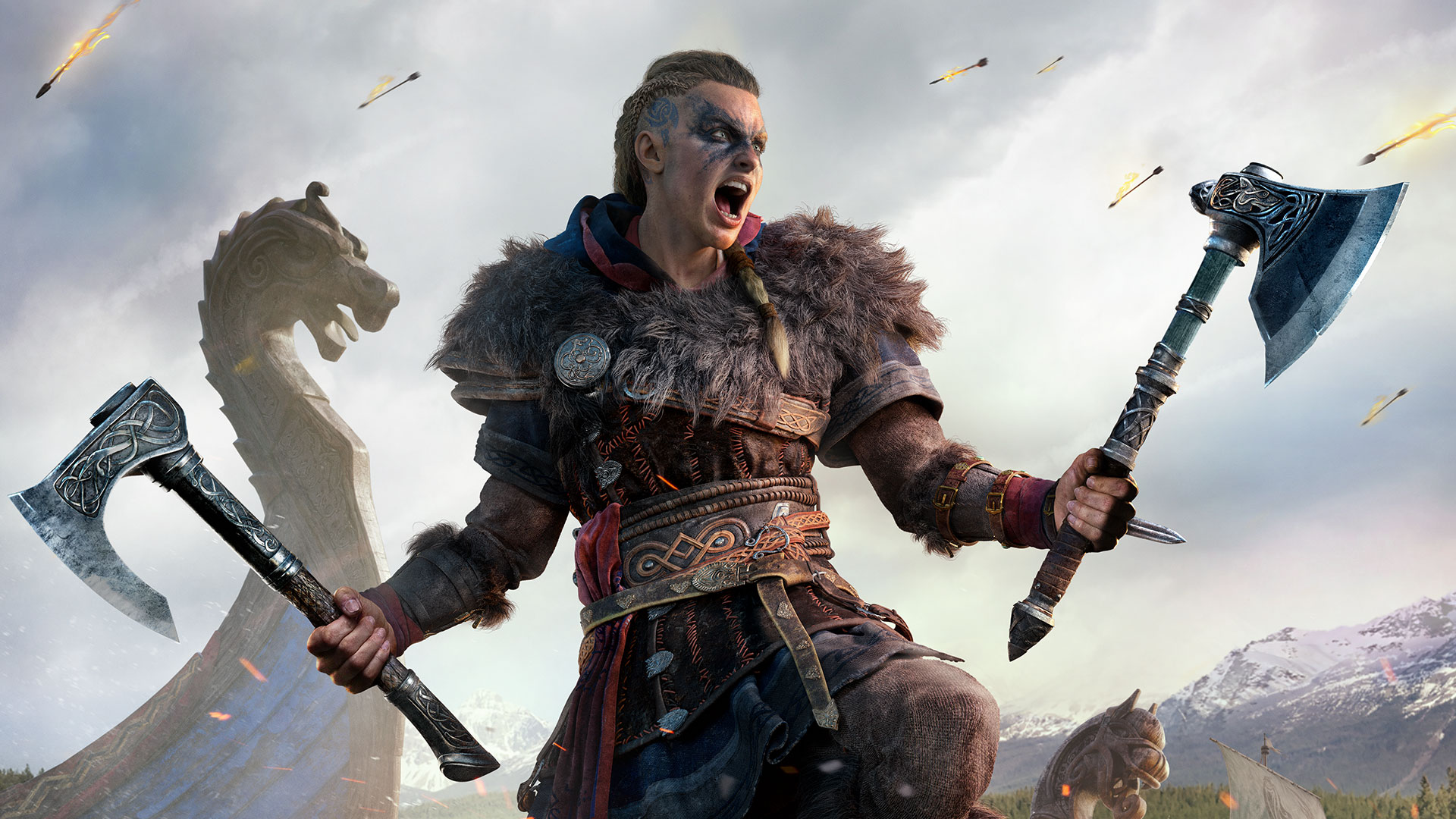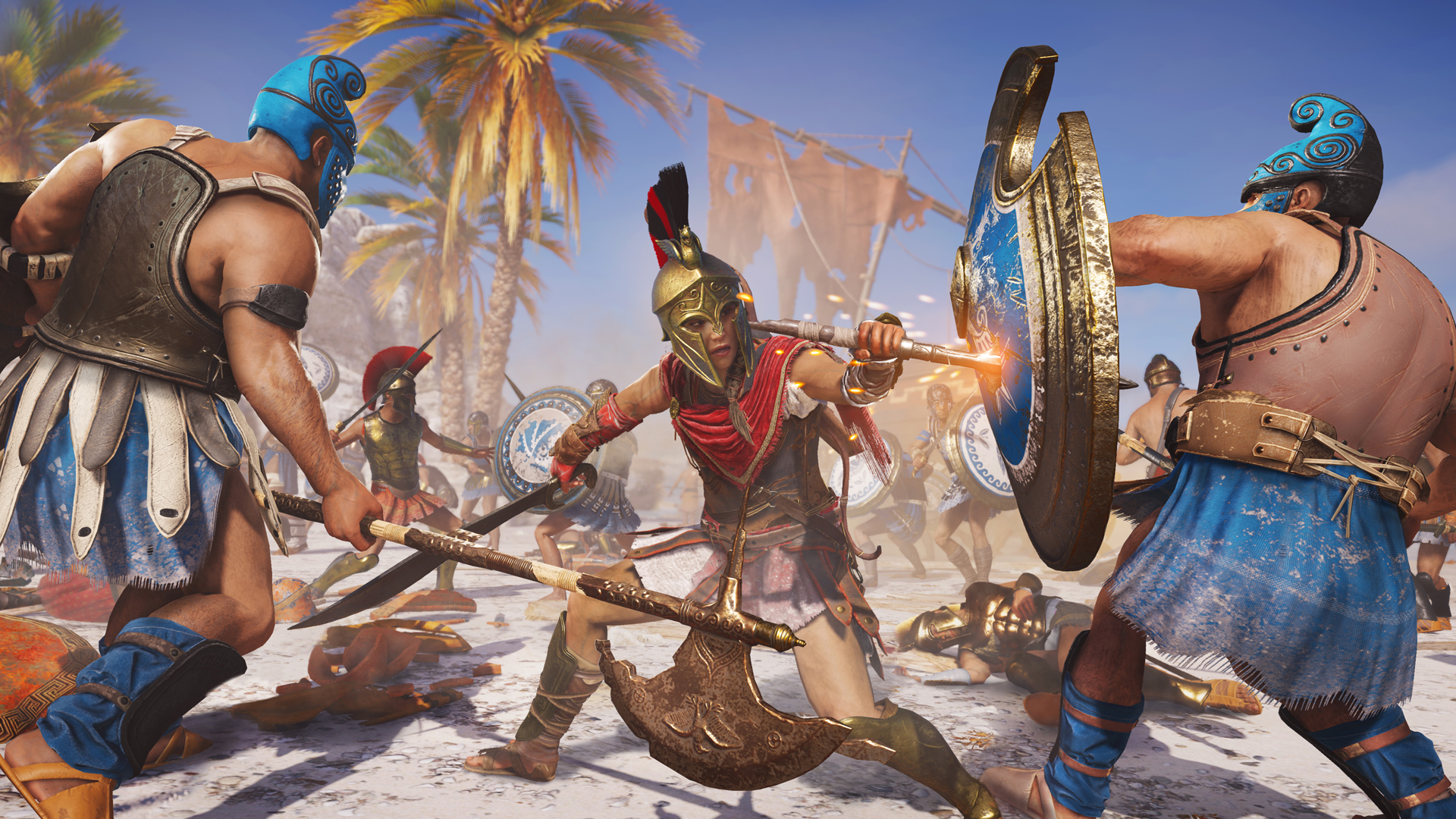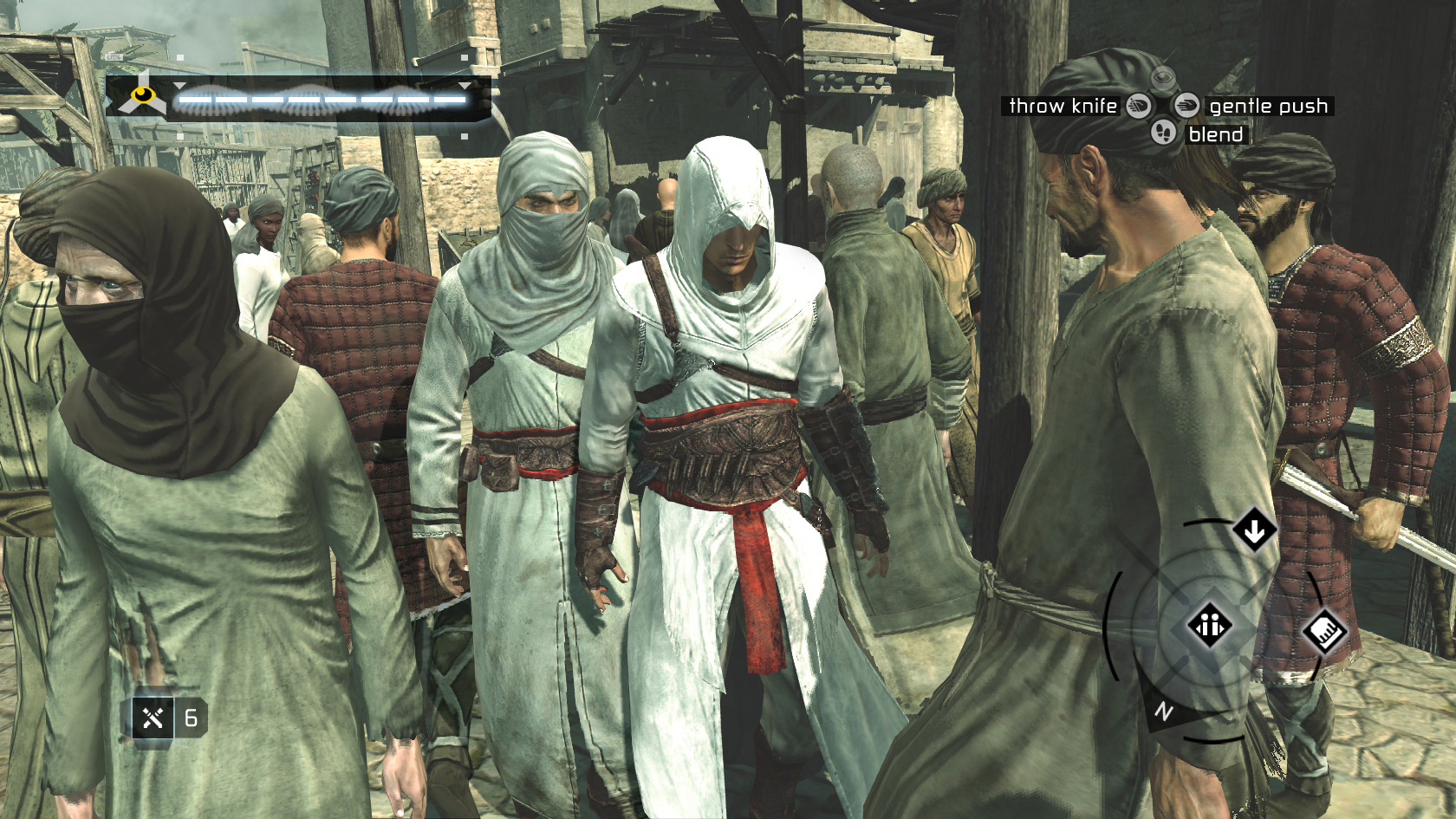Assassin’s Creed is changing. The historical gaming franchise has never been afraid of evolution, whether jumping through time periods or transitioning from a stealth action game to more of an RPG. But developer Ubisoft’s next big project, Assassin’s Creed Infinity, could represent a seismic shift for the franchise itself, with the potential to fundamentally change how the series works.
Revealed in a Bloomberg report that’s since been verified to a degree by developer Ubisoft, Assassin’s Creed Infinity looks set to tie future entries in the franchise together through ‘live service’ elements. Is this cause for excitement or concern for AC fans? Read on to find out.
[Update: We don't know much about Assassin's Creed Infinity just yet but we do know that it won't be free-to-play. Read on to find out more.]
- The best Assassin's Creed games: ranking the historical series
The ‘forever’ Assassin’s Creed game?
While Ubisoft has confirmed the existence of Assassin’s Creed Infinity, it hasn’t yet confirmed exactly what it will be (other than not free to play). So what follows is a well-informed run-down based on the aforementioned Bloomberg report and our own estimations based on our understanding of the situation.
Assassin’s Creed Infinity won’t be a new Assassin’s Creed game – or, at least, it won’t be a standalone entry like Assassin’s Creed Vahalla. Instead, it’ll be a future platform that will tie all the strands of the series together across multiple games.
A ‘live service’ (e.g, a gaming title that is continually updated and evolves with challenges and new content), Infinity is expected to be a central hub-like destination for fans of the series. New games will launch on (or supporting) Assassin’s Creed Infinity, which will more closely tie together games that are set across different time periods. As new eras are released, or expansions created, they’ll likely be added to Assassin’s Creed Infinity, perhaps with an overarching story or goal that will unify the experience.

The franchise already has an underlying narrative that ties each game together. In the games, players are able to access the past through a device called the Animus, using ancestral information to recreate times past. There’s nothing stopping Ubisoft from using the Animus as a central hook through which Assassin’s Creed Infinity ties all these diverging time periods together, while also drip feeding new content into the mix.
In practice, it could work a bit like the recent Hitman 3 release. With that title, IO Interactive was able to pull all three of its Hitman trilogy games together retrospectively into one package, while constantly adding new assassination contracts to keep players coming back for more. Considering that was a retroactive decision, we’d expect Ubisoft to have a clear ongoing roadmap for the way titles built with Infinity in mind will interact and reflect each other – the gaming equivalent of the Marvel Cinematic Universe.
We wouldn’t be surprised to see Infinity feature some sort of interactive hub area, set in the series’ modern day setting, with a selection of Animus devices set up letting you dive into whichever period takes your fancy, across multiple games from multiple Ubisoft development teams.
Who is working on Assassin’s Creed Infinity?
Instead of being the endeavor of a single arm of Ubisoft, the company has confirmed that the project will be a collaboration between multiple internal studios across the globe.
Ubisoft outlines Infinity as being headed up by at least two teams, run by two creative directors. Clint Hocking (Splinter Cell and Watch Dogs Legion), will lead a team out of Ubisoft Montreal, while Jonathan Dumont (Assassin's Creed Syndicate and Odyssey), will head up the crew at Ubisoft Quebec.
These two teams, and the games they produce, will ultimately be overseen by Marc-Alexis Côté, who becomes executive producer of the entire Assassin's Creed series. One of the top dogs at Ubisoft and a senior member of the Ubisoft Quebec team, Côté has worked on Brotherhood and Syndicate before moving to upper leadership positions at the company.

“Rather than continuing to pass the baton from game to game, we profoundly believe this is an opportunity for one of Ubisoft’s most beloved franchises to evolve in a more integrated and collaborative manner that’s less centered on studios and more focused on talent and leadership, no matter where they are within Ubisoft,” reads an open letter signed by Nathalie Bouchard, managing director, Ubisoft Quebec and Christophe Derennes, managing director, Ubisoft Montreal.
“Most importantly, Assassin’s Creed has always been developed by multicultural teams with various backgrounds and perspectives that have influenced the depiction of its characters, locations, and cultures. While we know there’s always room for improvement, we believe this new structure allows us to ensure that diversity and representation within our teams continues to grow and match that of our players.”
A historical precedent
We’ve seen for years now that Assassin’s Creed games are slowly shifting from single-player games into something a little more connected, and a little more fluid in terms of how content is layered upon each successive release.
First up, Assassin’s Creed Brotherhood added competitive multiplayer into the mix, while Black Flag added a fleet-management meta-game that would continue to play while you were away from your console. Assassin’s Creed Unity boldly (if not wholly successfully) experimented with co-operative multiplayer missions, while Origins introduced weekly challenges for players to tackle. Assassin’s Creed Odyssey expanded its story with monthly content releases, while the latest game, Assassin’s Creed Valhalla, will be the first to see its campaign elongated by two year’s worth of downloadable content support.

With hundreds of years of history to play with, you can see why Ubisoft would pick its Assassin's Creed franchise to explore the ever-growing live service gaming arena. Its DLC packs and online add-ons have proven the company can create compelling post-launch content for titles, eking more out of increasingly strenuous and costly development cycles.
How we will access Infinity will be an interesting reveal to see – is this the beginning of a transition to Assassin’s Creed as a service, like an MMO? An Xbox Game Pass style platform specifically for Assassin’s Creed titles with a connecting interactive tissue between the games? Or even maybe a premium take on the season pass model that’s proved so lucrative for the likes of Fortnite. For once, it seems appropriate to end on that old adage – only time will tell.
What we do at least know is that it won't be free-to-play. During a 2021 earnings call (via VGC), Ubisoft confirmed that Assassin’s Creed Infinity won’t be among the upcoming “high-end free-to-play games” it spoke about earlier in the year.
“It’s not going to be free to play and this game will have a lot of narrative elements in it,” Ubisoft CEO Yves Guillemot said. “It’s going to be a very innovative game but it will have what players already have in all the Assassin’s Creed games, all the elements that they love to get in them right from the start.
“It’s going to be a huge game but with lots of elements that already exist in the games that we published in the past.”
In addition, Ubisoft confirmed that Assassin’s Creed Infinity is still in early development, so it’s unlikely that we’ll get our hands on the game for some time yet.
source https://www.techradar.com/news/assassins-creed-infinity-what-you-need-to-know-about-the-new-assassins-creed-platform/
0 Comments:
Post a Comment